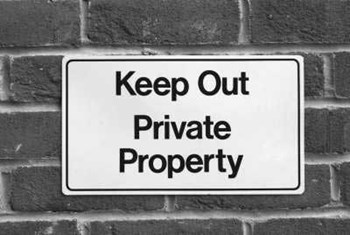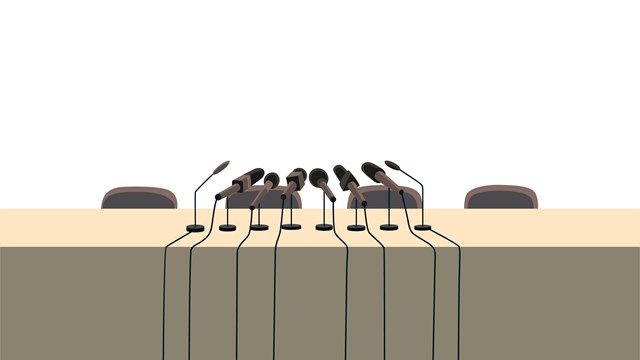
Conflict and disagreement among neighbors is something we all must face, whatever the living situation. As long as people have different viewpoints and varied lifestyles, they will argue and bicker and call each other names. And, add to that the extremely close living quarters of some New Jersey co-ops or condominiums, and the problems get even worse.
What are the most common types of neighbor disputes? And when should boards or management intervene in the affairs of their residents? What specific methods can boards or management use to alleviate problems among neighbors, especially those instances where police might be called in or, worse, huge lawsuits ensue?
Could You Keep It Down?
The three most common complaints residents make, according to Scott Piekarsky, an attorney with Piekarsky & Schettino in Hackensack, are "Noise, dogs, and cars."
One Hoboken property manager agrees that issues related to noise levels and to pets are common problems among residents. He also says that people tend to have differing opinions on how to dispose of and/or store trash and refuse.
"One time stands out in my mind where the daughter of a tenant was accused by the tenant below of dropping all sorts of trash, including cigarette butts, used condoms, beer bottles, and candle wax down onto the stoop of the unit below," he recounts. "That was a sticky situation as there was no definite proof—no camera footage or actual eye witness accounts—that could be used as leverage in trying to handle the situation from the management side."
Another perennial complaint people make in co-ops and condominiums is that their fellow residents are too noisy. Shared walls and cramped spaces contribute to the problem and can make ordinarily sanguine neighbors into rabid enemies in very short order.
"In high-density, multifamily housing units, we find that noise disturbances are the greatest cause for disagreements," reports Robin Habacht, president of Monticello Management, Inc., in Leonia. "And in co-op and condo situations, ownership plays a key role. Owners feel that they cannot move as easily and are entitled to a certain quality of life, so disagreements with neighbors may become more heated [than in a rental situation]."
Also, Habacht says that since large portions of co-op or condo buildings are owned in common by all residents, other dilemmas may crop up. For instance, the common area of the hallway directly outside a resident's door may seem like the perfect spot to store a bicycle, a baby stroller, or garbage bags waiting to go downstairs. But this storage of items is sometimes not acceptable to all residents, who have to walk past all the stuff.
"In rental situations, this is often less of an issue as the common space belongs to none of the tenants, and is 'governed' by the rules set forth by the landlord/management," explains the Hoboken manager. "In a condo building, all of the unit owners own this space, and the rules are set forth by the condo board."
In many cases, owners are apathetic and don't attend the condo association meetings, which is not only where they would learn what the house rules are for the common areas, but also have a chance to weigh in on what those rules should be.
"You'd be surprised at how difficult it can be to organize a meeting with enough unit owners to vote on issues related to the building," he adds. "This apathy often creates a certain amount of tension when a person is issued a fine for breaking the rules—which invariably the offender claims to have had no prior knowledge of."
When Should We Intervene?
According to Piekarsky, under New Jersey state law, if a condo association is aware of a dispute—either between residents or between a resident and the association itself—then the association must offer what is called alternative dispute resolution (ADR). This could come in the form of a resident committee, a judiciary committee, a covenants committee, or an outside mediator.
"In New Jersey and in other states, the Community Associations Institute trade organization has an ADR program," says Piekarsky. "Lawyers, managers, and others volunteer for the program so that associations can submit disputes to that. Basically, under Jersey law and the Condo Act, you really must get involved if a housing-related dispute is brought to your attention."
Additionally, management will probably need to step into the middle of a dispute if the disagreement involves the breaking of any of the association's rules.
"For instance, say unit owner A argues with unit owner B about excessive noise from above," explains Habacht. "The association had implemented rules where carpeting must be laid on the floors as noise dampeners, so management can intervene based on a breach of the association rules. They find that unit owner B had no carpeting on its floor and thus was in noncompliance of the carpeting rules. This resolves the disagreement."
An Unenviable Role
It's inevitable that, as long as people live alongside other people, disagreements will arise. This is why we hire property management for our buildings or associations—partly so we have an objective third party to put some of these grievances into perspective. But what should property managers do to solve problems among residents?
"First, listen to each party separately," advises Habacht. "And then try to bring them together in a neutral environment where we can negotiate a solution."
Habacht says that if a problem gets to the point of police being brought in, her management company would step back and let the trained professionals handle the situation. And, in the case of a lawsuit, "our position as a management company has been to stand down. Our role is to facilitate the operations of the association, and involvement in legal proceedings between individual owners is not conducive to association operations."
It sometimes becomes the duty of the manager to direct the board in the case of a lawsuit. However, most industry experts don't recommend taking that role any further than that of a liaison between the board and the attorney.
"A good management team is able to streamline the process [of a lawsuit] by making arrangements or appointments, and providing whatever documentation might be required," advises one pro. "But it should not specifically involve itself in conflicts other than to act at the board's direction. Often this is useful in that it enables management to act as a neutral party that can interact with all parties involved."
Easy Does It
Piekarsky recommends that, when tempers first flare, managers try the personal touch of a personal phone call, an in-person meeting, or a letter. If the residents continue to battle to where it gets to the point of alternative dispute resolution, he suggests possibly having the association's attorney write a letter.
"Most associations try to do it casually, informally," he says. "And if that doesn't work, you go to the higher level of the formal procedure."
And Piekarsky agrees with his colleagues about police matters, saying that if police are called in, "Most associations and boards take the position that police and municipal matters are out of our hands."
"I've seen disputes [that are] both in municipal court, and then it does become filed as a grievance with the association, so sometimes it's handled on both levels," he explains. "But we always prefer to let people handle these things privately so that we don't have to get involved."
As far as private lawsuits, Piekarsky is on same page as Habacht. "If it's a private matter amongst unit owners—let them and their counsel work it out," he says. "But there are times the association does get subpoenaed for a deposition or a trial and they don't have a choice."
Moreover, in any sort of problems between neighbors, the best course of action for management is to have a set of procedures written and published so that residents know it's available. Beyond that, managers should make it a habit to use this protocol for any disputes that might crop up.
Another suggestion for property managers is to institute fines for breaking the rules set forth by the condo association or board.
"Often problems between neighbors are difficult for anyone to truly resolve," says one manager. "Condo boards that institute fines have an easier time resolving disagreements about such things as noise levels, pet-related issues, or trash issues. People respect rules when breaking them results in a lighter wallet."
Conflict Costs
If a co-op or condo association sees too many of these disputes, might it be possible to see a decrease in property values? After all, who wants to live among people who just can't get along? Many people would consider having such a dismal neighbor situation as a property defect that could negatively affect property value.
"In general, any long-term conflict has a negative cultural impact on a community," says Habacht. "It may not affect the value of the property, but it will affect the quality of living for those directly involved in the conflict and those living around it."
According to Piekarsky, conflicts like this "bring up a very interesting and academic legal question on issues of disclosure. Under New Jersey case law, you have a pretty awesome responsibility to disclose defects and problems and off-site conditions. So it brings up a good question: when it comes to resale, if you've got a major problem with a neighbor above or below, do you have to disclose it?"
For now, that question remains academic—but with buyers paying premiums for property and our society increasingly litigious, endless conflicts within an HOA may cost residents more than just peace of mind. In the short-term however, harmony among neighbors is a goal any good board should strive for.
Domini Hedderman is a freelance writer and a frequent contributor to The New Jersey Cooperator.






Comments
Leave a Comment